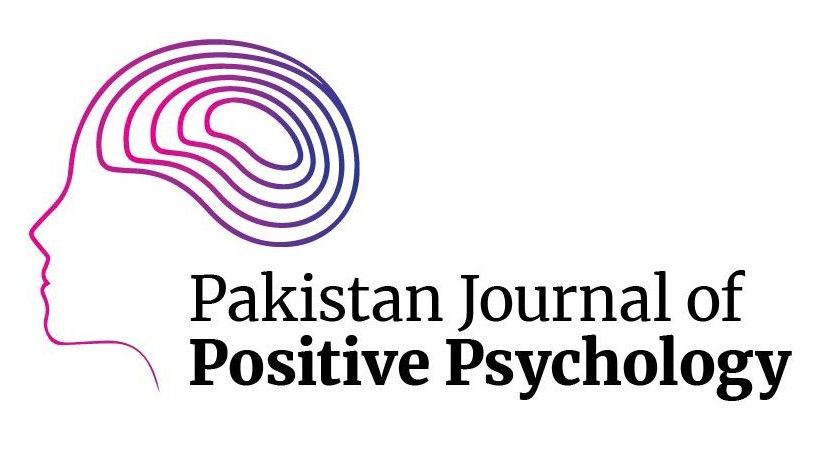Emotional Intelligence, Gratitude and Forgiveness among University Students
Keywords:
Emotional Intelligence, Gratitude, ForgivenessAbstract
The primary objective of this study was to investigate the associations among emotional intelligence, gratitude, and forgiveness in university students. Additionally, the research aimed to examine gender differences and differences in public and private sector universities in social emotional intelligence, gratitude, and forgiveness. A sample of 200 participants (i.e., 100 men & 100 women) was selected from various universities using a convenient sampling technique. The study employed a cross-sectional research design, and data analysis was conducted using SPSS version 23. The study's outcomes provided strong empirical support, affirming a significant positive correlation between emotional intelligence and gratitude among university students. Furthermore, the results confirmed a significant positive correlation between emotional intelligence and forgiveness, while also indicating a positive and significant relationship between gratitude and forgiveness among university students. The findings additionally revealed no noteworthy disparities in emotional intelligence, gratitude, and forgiveness between male and female students. Similarly, the results suggested the absence of significant differences between students from public and private institutes concerning emotional intelligence, gratitude, and forgiveness.
References
Ahsan, U., Zeb, R., & Arzeen, S. (2023). Can Emotional Intelligence and Forgiveness bring a Difference? Comparison between Clinically Diagnosed Individuals and Normal Population. Pakistan Journal of Medical & Health Sciences, 17(05), 513-517. https://doi.org/10.53350/pjmhs2023175513
Amani, M., Shiri, E., & Rajabi, S. (2014). The Role of Spiritual and Emotional Intelligence in Predicting of Studentsâ™ Forgiveness. Knowledge & Research in Applied Psychology, 15(1), 73–80.
Boonyarit, I., Chuawanlee, W., Macaskill, A., & Supparerkchaisakul, N. (2013). A Psychometric Analysis of the Workplace Forgiveness Scale. Europe’s Journal of Psychology, 9(2), 319-338. https://doi.org/10.5964/ejop.v9i2.551
Chamizo-Nieto, M. T., Rey, L., & Pellitteri, J. (2020). Gratitude and Emotional Intelligence as Protective Factors against Cyber-Aggression: Analysis of a Mediation Model. International Journal of Environmental Research and Public Health, 17(12), Article 12. https://doi.org/10.3390/ijerph17124475
Costa, H., Ripoll Botella, P., Sánchez, M., & Carvalho, C. (2013). Emotional Intelligence and Self-Efficacy: Effects on Psychological Well-Being in College Students. The Spanish Journal of Psychology, 16, E50. https://doi.org/10.1017/sjp.2013.39
Fuertes, A. (2024). Students in Higher Education Explore the Practice of Gratitude as Spirituality and Its Impact on Well-Being. Religions, 15(9), 1078.
Geng, Y. (2018). Gratitude mediates the effect of emotional intelligence on subjective well-being: A structural equation modeling analysis. Journal of Health Psychology, 23(10), 1378–1386. https://doi.org/10.1177/1359105316677295
Khan, I., & Singh, N. (2013). A Study on Gender Differences on Gratitude, Spirituality and Forgiveness Among School Teachers. Indian Journal of Applied Research, 1(1), 9-14.
McCullough, M. E., Emmons, R. A., & Tsang, J.-A. (2002). The grateful disposition: A conceptual and empirical topography. Journal of Personality and Social Psychology, 82(1), 112–127. https://doi.org/10.1037/0022-3514.82.1.112
Noreen, Z., & Iqbal, M. (2024). The Consequences of Cyberbullying on the Psychological Well-being of University Students. Research Journal of Social Sciences and Economics Review, 5(1), 36-46.
Salgado-Levano, C., Grimaldo, M., Correa-Rojas, J., Mori-Sánchez, M. D. P., & Riveros-Paredes, P. (2024). Spiritual well-being and its influence on forgiveness, gratitude, and resilience in university students in Lima (Peru). Ciencias Psicológicas, 18(2).
Schutte, N. S., Malouff, J. M., Hall, L. E., Haggerty, D. J., Cooper, J. T., Golden, C. J., & Dornheim, L. (1998). Development and validation of a measure of emotional intelligence. Personality and individual differences, 25(2), 167-177.
Sharma, G. (2021). Relationship of gratitude and emotional intelligence with happiness among adolescents. International Journal of Indian Psychology, 9(2), 1468-1485.
Shi, M., & Du, T. (2020). Associations of emotional intelligence and gratitude with empathy in medical students. BMC Medical Education, 20(1), 116. https://doi.org/10.1186/s12909-020-02041-4
Trish, S. (2023). The Role of Emotional Intelligence in Education: Fostering Social and Emotional Learning in Schools. Journal of Advanced Research in Education, 2(5), 19-33.
Van Dyke, C. J., & Elias, M. J. (2008). How Expressions of Forgiveness, Purpose, and Religiosity Relate to Emotional Intelligence and Self-Concept in Urban Fifth-Grade Students. American Journal of Orthopsychiatry, 78(4), 481–493. https://doi.org/10.1037/a0014451
Wilks, D., Neto, F., & Mavroveli, S. (2014). Trait emotional intelligence, forgiveness, and gratitude in Cape Verdean and Portuguese students. South African Journal of Psychology, 45, 93–101. https://doi.org/10.1177/0081246314546347
Downloads
Published
How to Cite
Issue
Section
License
Copyright (c) 2024 Pakistan Journal of Positive Psychology

This work is licensed under a Creative Commons Attribution 4.0 International License.





